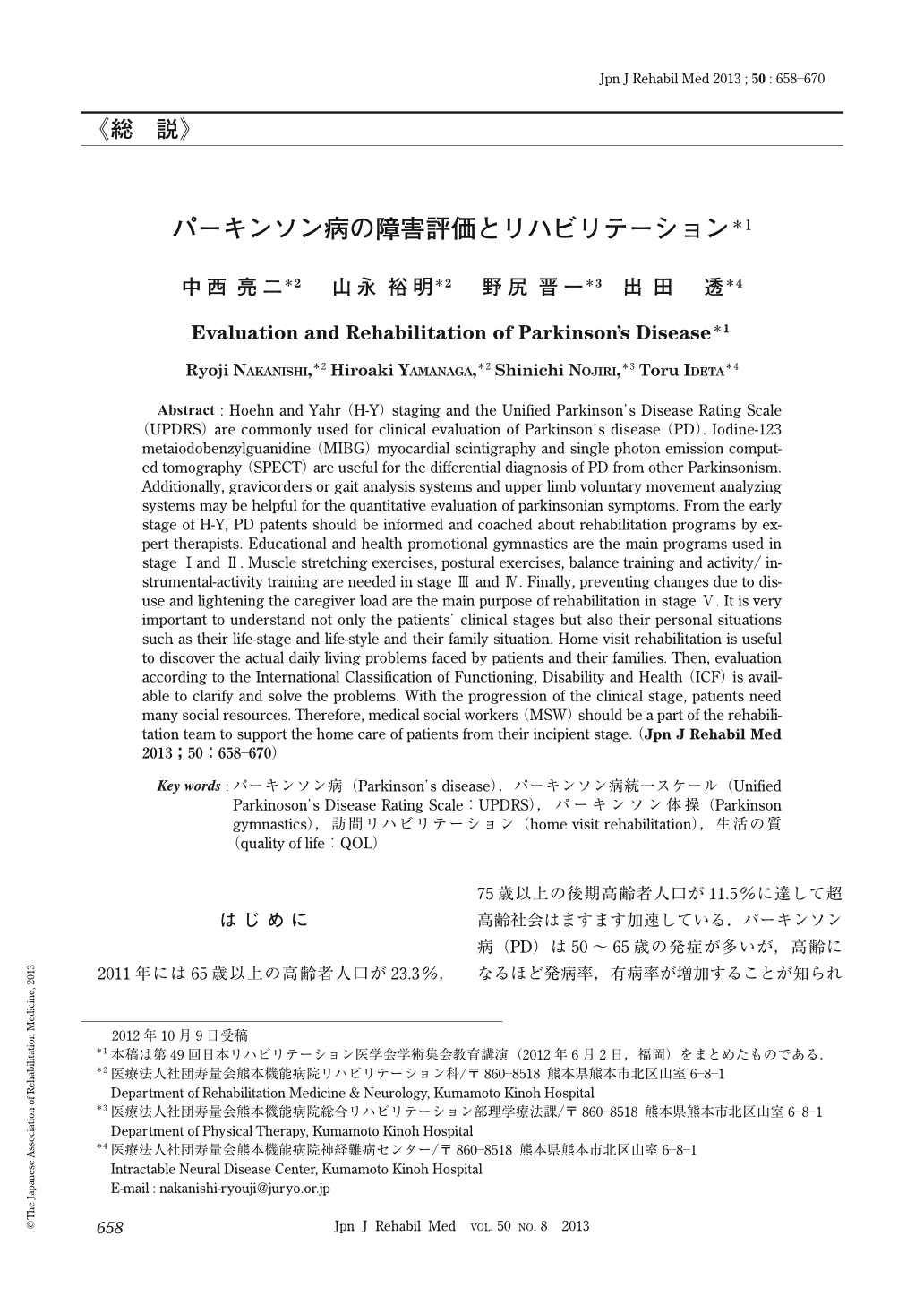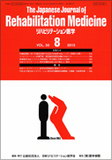Japanese
English
- 販売していません
- Abstract 文献概要
- 1ページ目 Look Inside
- 参考文献 Reference
はじめに
2011年には65歳以上の高齢者人口が23.3%,75歳以上の後期高齢者人口が11.5%に達して超高齢社会はますます加速している.パーキンソン病(PD)は50~65歳の発症が多いが,高齢になるほど発病率,有病率が増加することが知られている1).近年,PDの平均寿命はPD以外と差がなくなってきており,10万人あたり100~150人とされている有病率1)は今後さらに増加し,認知症や老年期症候群を併発する重複障害化が進むと考えられる.各種抗パーキンソン病薬(以下,抗パ薬)による薬物療法や深部脳刺激法などPDに対する治療が最優先されるのは勿論であるが,リハビリテーション(以下,リハ)は薬物療法と併用することで,直接的・間接的に,残存する機能や能力を維持・改善させ,日常生活動作(ADL)・生活の質(QOL)を保つための有効な手段と成り得る2,3).本稿では,PDの評価とリハの実際について概説する.
Abstract : Hoehn and Yahr (H-Y) staging and the Unified Parkinson's Disease Rating Scale (UPDRS) are commonly used for clinical evaluation of Parkinson's disease (PD). Iodine-123 metaiodobenzylguanidine (MIBG) myocardial scintigraphy and single photon emission computed tomography (SPECT) are useful for the differential diagnosis of PD from other Parkinsonism. Additionally, gravicorders or gait analysis systems and upper limb voluntary movement analyzing systems may be helpful for the quantitative evaluation of parkinsonian symptoms. From the early stage of H-Y, PD patents should be informed and coached about rehabilitation programs by expert therapists. Educational and health promotional gymnastics are the main programs used in stage Ⅰand Ⅱ. Muscle stretching exercises, postural exercises, balance training and activity/ instrumental-activity training are needed in stage Ⅲ and Ⅳ. Finally, preventing changes due to disuse and lightening the caregiver load are the main purpose of rehabilitation in stage Ⅴ. It is very important to understand not only the patients' clinical stages but also their personal situations such as their life-stage and life-style and their family situation. Home visit rehabilitation is useful to discover the actual daily living problems faced by patients and their families. Then, evaluation according to the International Classification of Functioning, Disability and Health (ICF) is available to clarify and solve the problems. With the progression of the clinical stage, patients need many social resources. Therefore, medical social workers (MSW) should be a part of the rehabilitation team to support the home care of patients from their incipient stage.

Copyright © 2013, The Japanese Association of Rehabilitation Medicine. All rights reserved.


